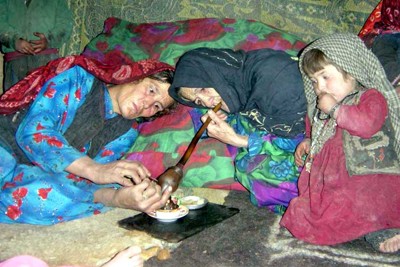James Kirkup
The private warning from UK diplomats emerged as Gordon Brown insisted that British troops would stay in Afghanistan for the foreseeable future despite the UK death toll in the country reaching 100.

"This is a fact that every Afghan, even the Afghan government knows," a bitterly complaining drug convict says. "Traders support the farmers. They are government officials, high-ranking policemen and members of parliament. They are powerful people. And the big drug traders are free."- VOA (June 4, 2008)
The reaching of that milestone has put renewed focus on the 7,800-strong UK mission in Afghanistan and fuelled fears that Britain has been sucked into an unwinnable war in the country.
In a confidential Government paper seen by the Daily Telegraph, diplomats warn Mr Brown that the growing Afghan opium trade will prolong the Taliban insurgency and say the Kabul government's failure to tackle corruption is fuelling popular resentment.
The British deployment began in 2001 when Western troops entered Afghanistan, drove the Taliban regime from Kabul and ultimately cleared the way for Hamid Karzai's elected government to take office.
Publicly, Britain insists Mr Karzai remains a force for good in Afghanistan, the country's best hope for progress. But privately, doubts are growing.
In a briefing paper for the Prime Minister marked "Confidential," UK diplomats say that Mr Karzai is refusing to taken on the drug lords and has allowed major players in the Afghan opium trade to take up senior government posts.
Afghanistan's poppy fields have more than doubled in size since 2003. Last year, the country produced enough opium to make over 880 tons of pure heroin, roughly 93 percent of world output.
"Growing links between the drugs trade and the insurgency in the South will provide longevity to the Taliban," the UK document says. "In the south, the drugs trade is fuelling the insurgency."
It adds: "This is compounded by government corruption. Karzai chooses to avoid rocking the boat with powerful narco figures and has not blocked their appointment as governors or other senior officials."
In turn, Mr Karzai's failure to tackle corruption and the drug lords "only increases popular disillusion," further boosting the insurgency, the paper says.
There is no timetable for withdrawing British troops from Afghanistan, and Downing Street today insisted that the Prime Minister is prepared for a long, drawn-out deployment.
"The Prime Minister is convinced that staying in Afghanistan is the right thing to do," Mr Brown's spokesman said. "We have been making progress. There is a great deal to do. This will take time"
The bulk of the British deaths have come since 2006 when UK forces began a major NATO mission in the south aimed at driving out Taliban-backed militias and paving the way for development work to begin.
Charles Heyman, defence analyst and former Army major, said that the British deployment has now suffered "mission creep" and questioned the long-term Western strategy.
He said: "It cannot be realistic to turn Afghanistan into a fully functioning democratic state along Western lines, we haven't got enough money."
"The actual insurgency has morphed back into a guerrilla terrorist campaign. We cannot go on with low level guerrilla terrorism for many, many years."
To counter those doubts, ministers are now preparing a new communications campaign to persuade voters of the need for British troops to remain in Afghanistan for years to come.
Des Browne, the Defence Secretary, yesterday said that the Government must do more to explain the Afghan mission to the British public.
"I have said that Afghanistan is the noble cause of the 21st century and I passionately believe that," Mr Browne told BBC radio.
He added that there is "not one member of our services" who questions the rightness of this cause.
But he said: "Their frustration, if anything, is that people back here in the United Kingdom don't understand what they are achieving and that none of the positives of what they are doing, they believe, are fully understood by people back here."



